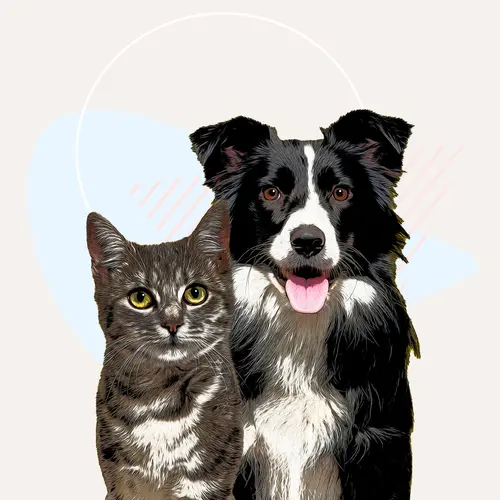For folks who aren't familiar with horses, it's easy to assume that the most significant difference between horses is the color of their coats. In fact, horses are a diverse species with more than 400 different breeds.
Humans first domesticated horses close to 4,000 years ago. In the centuries since then, we have used breeding to evolve horses that serve different purposes. Some breeds developed to be strong enough to carry heavy burdens. Others were selectively bred for speed. Still others are intended to be smart and agile to assist their riders with herding other animals.
Categories of Horses
While the hundreds of breeds of horses all have different characteristics, you can group them into five broad categories:
- Ponies: The main difference between a horse and a pony is height. Any horse under 14.2 hands high, or about 4.5 feet tall is considered a pony. Ponies were bred for all the same activities as larger horses, including riding, pulling wagons, and carrying burdens. Nowadays, ponies are popular for teaching young children to ride. Their small size makes them easier for children to care for and ride.
- Draft Horses: The most famous type of draft horse is probably the Clydesdale. With their massive size and strength, plus signature large hooves, Clydesdales and other draft horse breeds are valued for their ability to pull heavy loads. They were historically used in farm work, though they were also used as mounts for military officers in battle.
- Gaited Types: Gaited horses were bred for a distinctive ability to move gracefully and smoothly. They were valued as horses for long-distance traveling because they have a great deal of stamina as well as being easy to ride. Also called saddlebreds, they are still popular riding horses.
- Light Horses: Light horses tend to be small, though not so small as to be classified as ponies. They are excellent riding horses and cowboys in the American West used them for herding work, particularly Appaloosas and American Paint horses. Others were bred for speed and are known for racing prowess, such as Quarter Horses and Thoroughbreds.
- Warmbloods: Sometimes called sporting horses, warmbloods are the type of horses you might see in an Olympic equestrian event. These breeds were developed by crossing draft horses with the more spirited breeds like Arabians or Thoroughbreds. The results are horses that are both athletic and even-tempered.
What Kind Of Horse Should You Get?
If you are in the market for a horse of your own, you should consider different factors before settling on a breed.
Do you want a horse or a pony? There is no hard and fast rule for how old a rider can be and still ride ponies. Teenagers and adults who aren’t too tall can comfortably ride some ponies, such as Welsh ponies and cobs. However, if you are buying a horse for a young rider who may outgrow a pony, you might be better off choosing a horse.
How much riding experience do you have? You should be very honest about your riding experience level and your skills as a rider when you consider what type of horse to buy. Owning a more spirited horse than you are prepared to handle will make riding difficult, if not dangerous. If you are still a beginner, look for a breed with a docile temperament, such as an American Quarter Horse or a Tennessee Walker. If you are an advanced rider, you might seek out a horse with more speed or athleticism, such as a Thoroughbred or Hanoverian.
What type or riding will you be doing? If you are training for competitive events like horse shows or three-day eventing, you should consider breeds that are known for their strength and jumping ability, such as a Dutch Warmblood. If you are more of a pleasure rider or expect to spend most of your time trail riding, you can look for a horse that is more comfortable to ride, such as an American Saddlebred.
Choosing a horse is a big decision and there are a lot of horses to choose from. Selecting the right breed for your needs can be complicated. Talk to your riding instructor or your veterinarian for help choosing the right horse breed for you.

